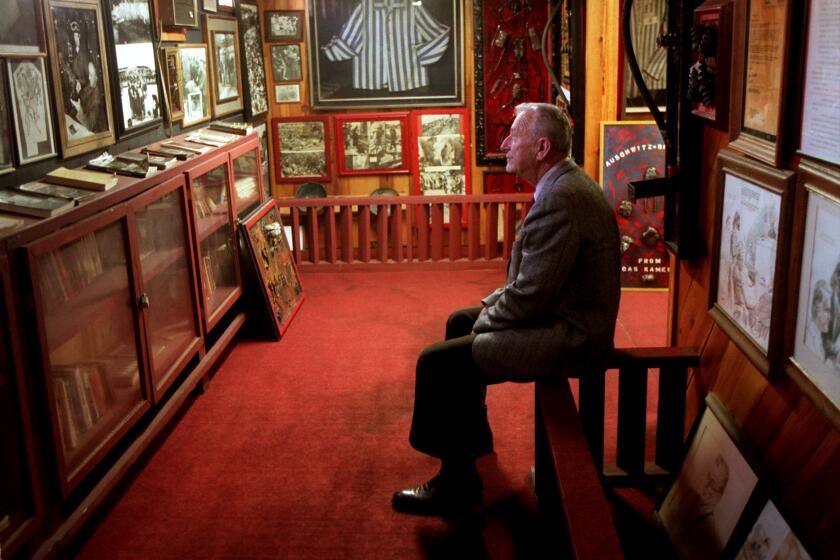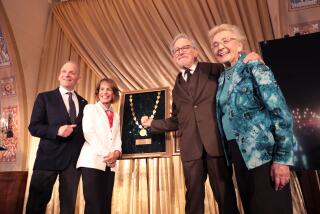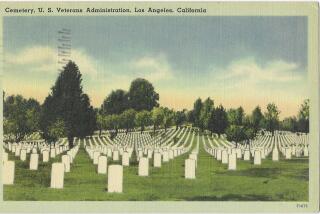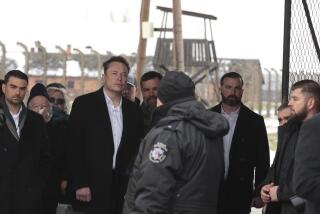Artifacts collected by Holocaust survivor find a new home in Orange County after his death
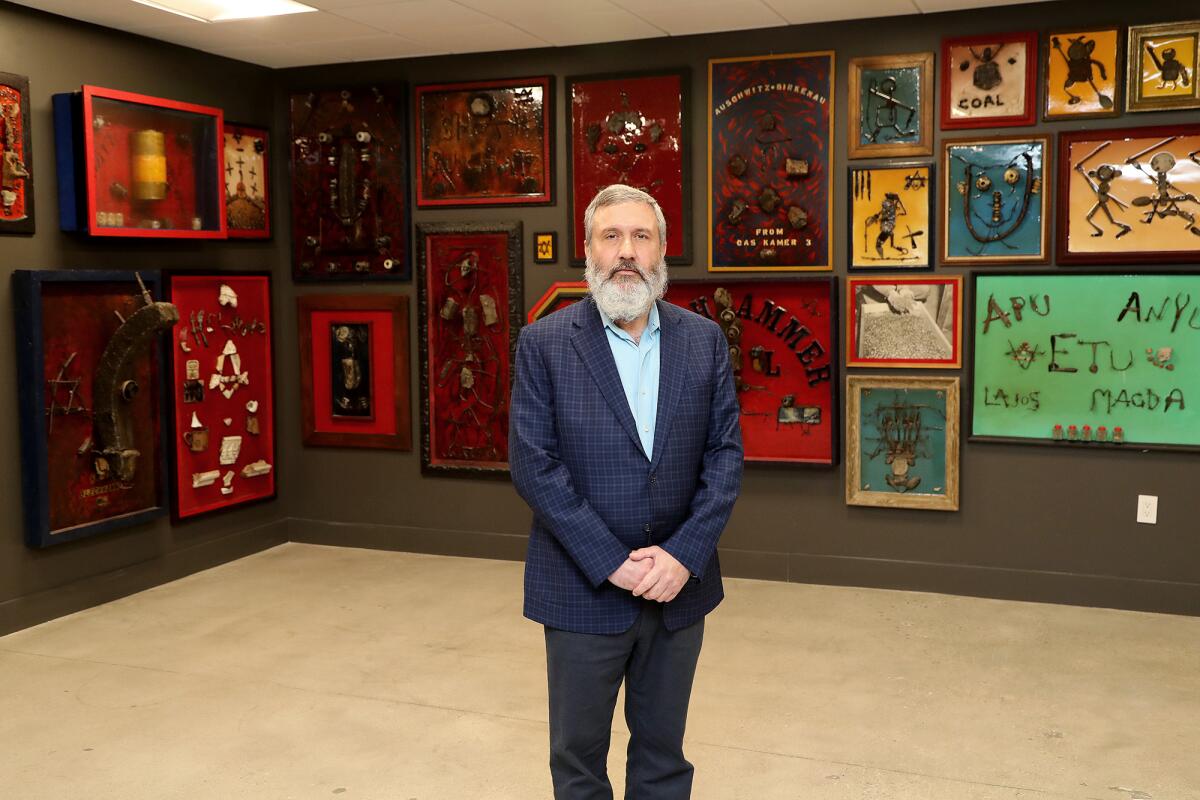
- Share via
For decades, a Huntington Beach lumberyard was the site of a museum where visitors were given an honest look at the Holocaust as seen through the eyes of someone who’d experienced its horrors and survived.
Ideal Pallet System Inc. was owned and operated by Mel Mermelstein, who was imprisoned in Auschwitz at the age of 17 and the only member of his immediate family to leave alive.
Dedicated to collecting evidence of the atrocities committed against the Jewish people at Auschwitz, Buchenwald and beyond, Mermelstein began traveling abroad in 1967, visiting death camps and gathering grim artifacts — bullet casings, bone fragments, remnants of barbed wire fences and the structures they surrounded.
Mel Mermelstein lost his entire family in the Nazi death camps and vowed never to forget. He opened a museum and the Auschwitz Study Foundation.
Those findings, coupled with memorabilia Mermelstein had kept or received over several years, amassed into a collection of more than 700 pieces. The Long Beach resident would submit some of them as evidence in court to win a ruling from a judge in 1981 establishing the Holocaust as indisputable fact after he took on a right-wing Torrance group that claimed the Holocaust was a myth.
The collection was displayed in shipping containers at the lumberyard, a museum Mermelstein opened to schools free of charge, his daughter, Edie, said Friday.
“You didn’t even know it was in there, then you’d walk in and there was 1,600 square feet of stuff,” she said. “It was really on the down low — only teachers who knew about us would come around. My dad would tell his manager and workers they needed to stop work while the students were there, so there wouldn’t be banging going on.”
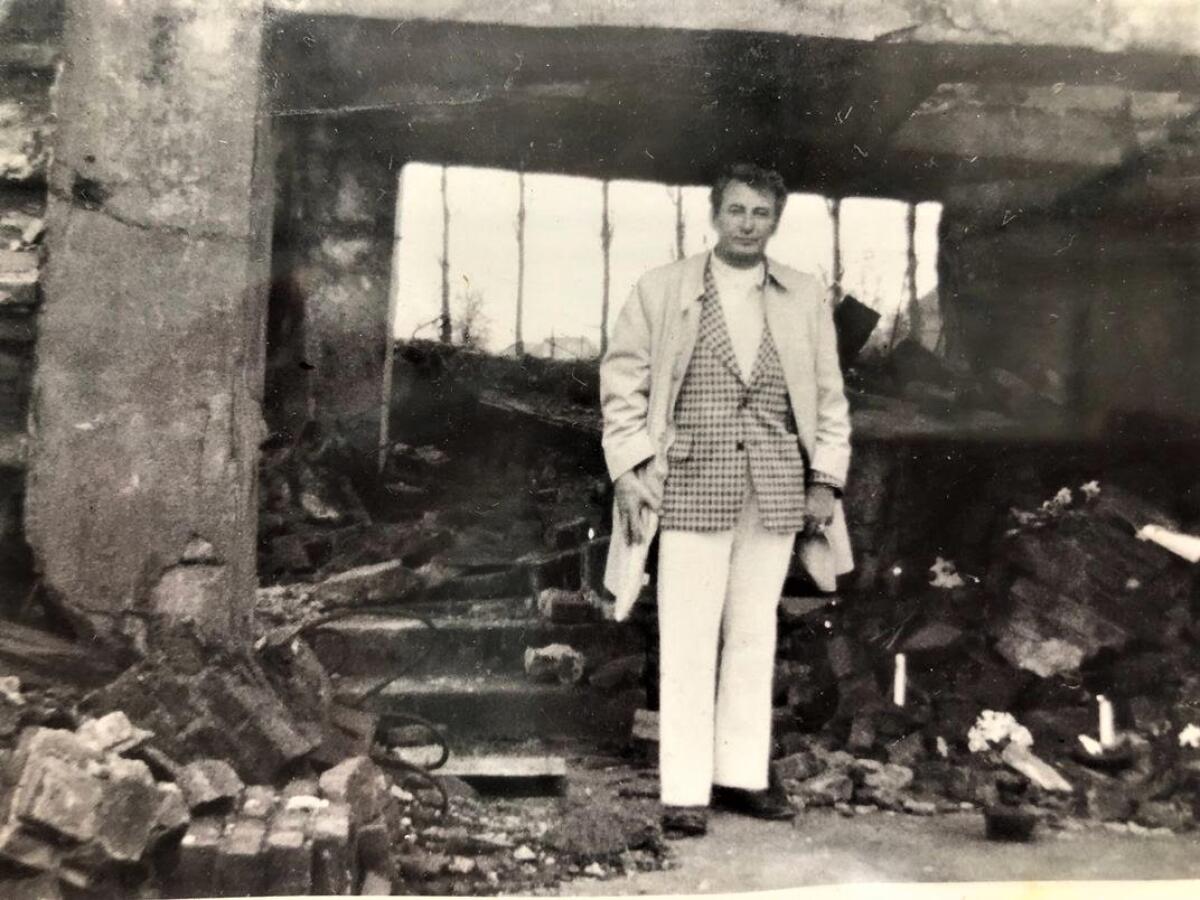
In 1978, Mermelstein established the Auschwitz Study Foundation, a nonprofit whose board members embraced his mission to educate future generations about the Holocaust in hopes of inspiring them to live in peace and harmony. Their work would continue even after the lumberyard, and the collection, closed to visitors in 2018.
Mermelstein died Jan. 28 of complications from COVID-19, but his mission lives on and plans for expansion are in the works — his collection recently found a home in Newport Beach’s Chabad Center for Jewish Life.
At a grand opening ceremony in late August, Edie Mermelstein joined ASF board members and Chabad Center leaders in what they hope will become an Orange County Holocaust Education Center.
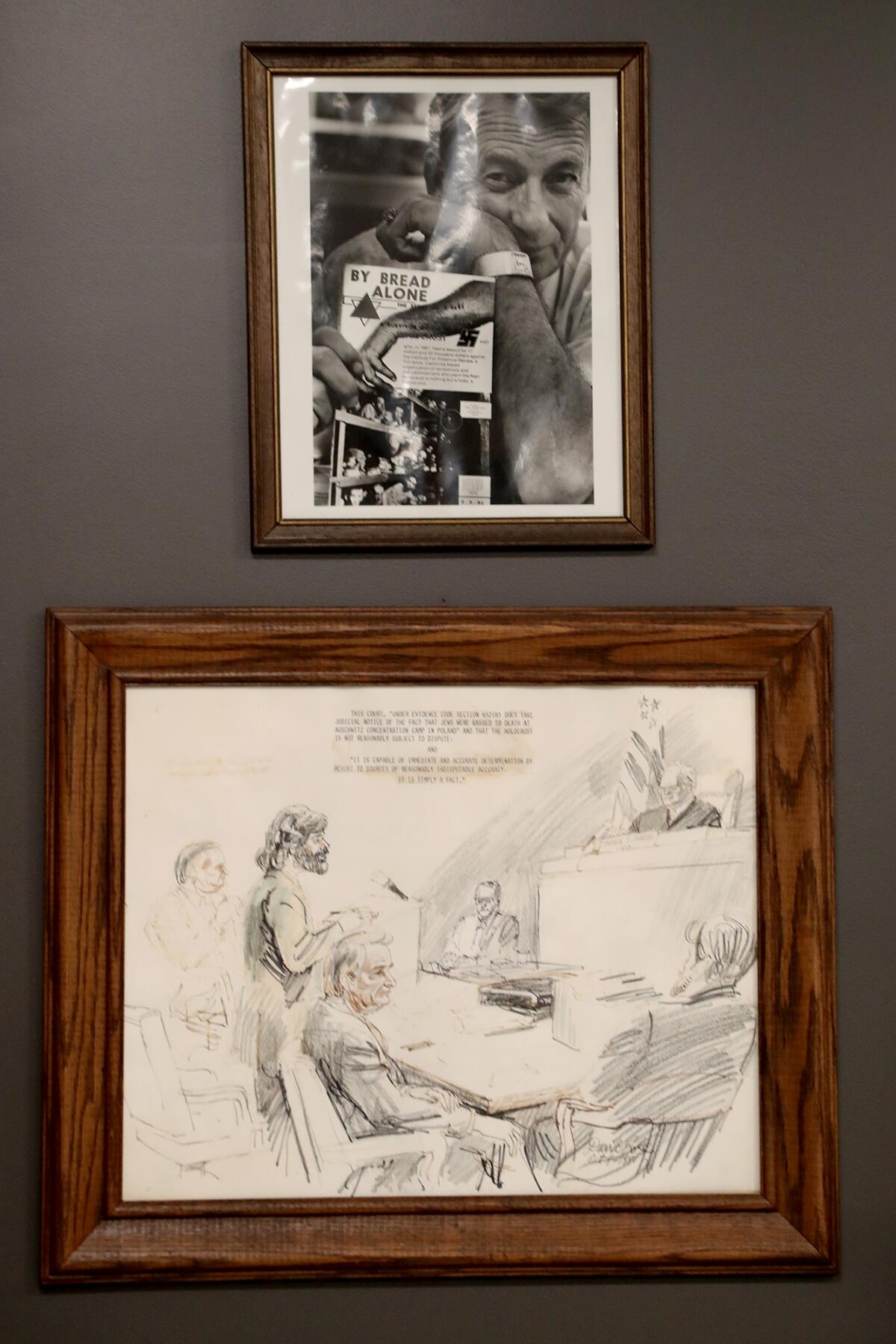
The exhibit is open for groups with reservations and features about 70 items, including art pieces Mermelstein created from everyday objects and artifacts. The plan is to open the space to the visiting public in the coming months and rotate items, so the entire collection can be seen.
Rabbi Reuven Mintz, who heads the Newport Beach organization, said Mermelstein dedicated his life to serving as a witness and vowed the Chabad Center would build on that commitment.
“He equipped himself with these tools of darkness, utilized to murder millions of people, and he turned these tools of darkness into instruments of light,” Mintz said Friday. “We will redouble our efforts, now that Mel has passed on and given his torch to us, his family and the community.”
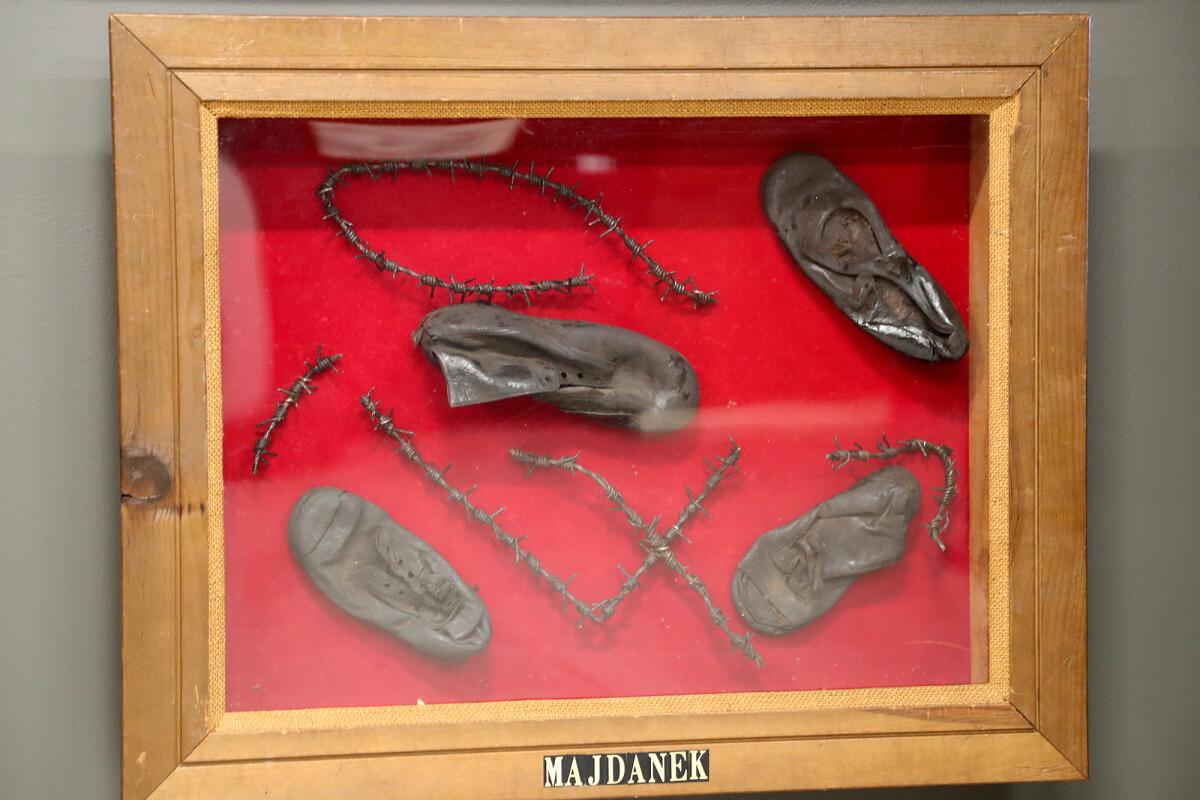
Josh Anderson, an English teacher at Huntington Beach High School, joined the board of the Auschwitz Study Foundation after taking sophomores studying the Holocaust on numerous field trips to Mermelstein’s lumberyard and seeing the effect it had firsthand.
“They really don’t get it if they just see it in a book or a video,” he said. “When they can see the actual barbed wire, the stars of David and the shower heads, it becomes super real.”
Anderson recounted the story of how, when Mermelstein was a teenager in Auschwitz, his father told him and his brother they would have to split up, to increase the chances that one of them would make it out alive and live to tell the story of the Holocaust so the world would never forget.
“He did that, and he lived to 95,” Anderson said. “Now, it’s Edie’s job, and my job, and the board’s job and all the teachers in Orange County’s job to tell his story.”
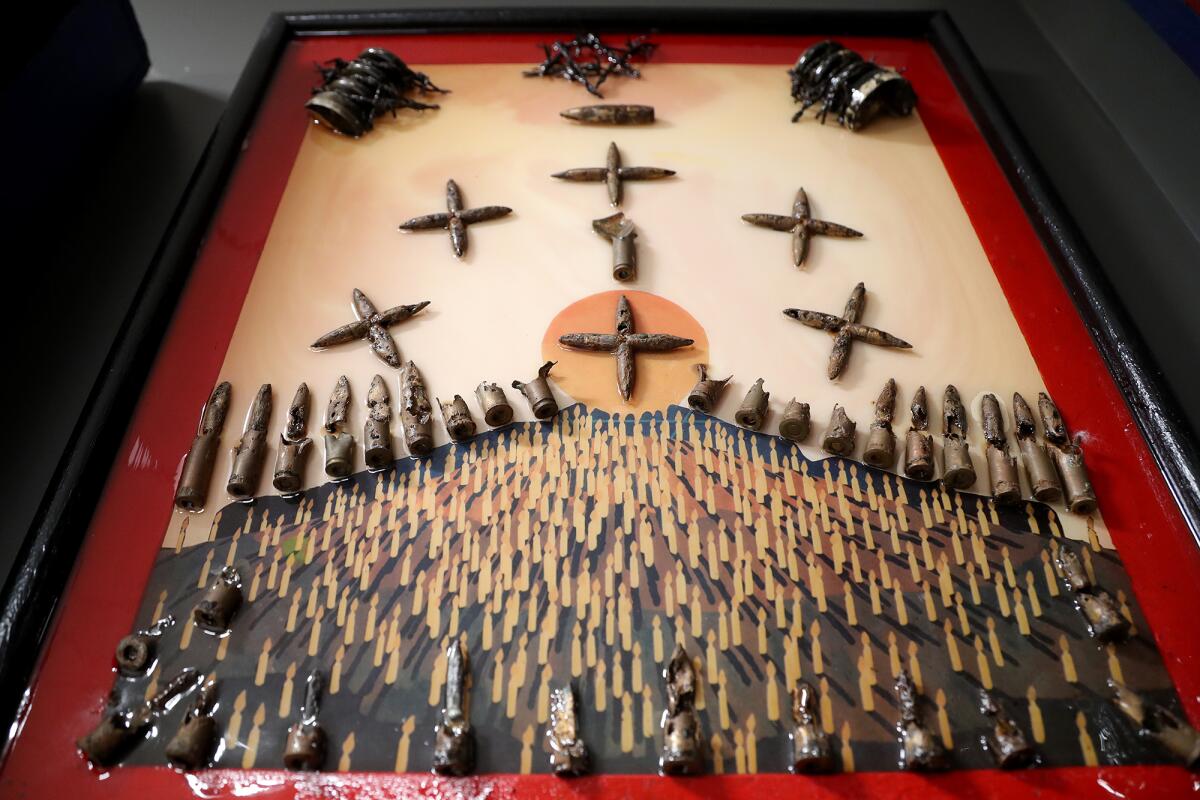
Edie Mermelstein, who lives and practices law in Huntington Beach, is working on a documentary of her family’s story called “Live to Tell.” Still busy fielding requests for comment on her father’s death from the New York Times, Washington Post and NBC’s “Today” show, she hasn’t yet had time to fully grieve her loss.
Instead, the self-described “gatekeeper” of the artifact collection continues her father’s mission.
“He was very dedicated, and he was just an advocate for peace,” she said. “He felt like bringing Auschwitz to the United States would help bring peace and understanding among men. I know his legacy is going to live on.”
More to Read
Sign up for Essential California
The most important California stories and recommendations in your inbox every morning.
You may occasionally receive promotional content from the Los Angeles Times.
